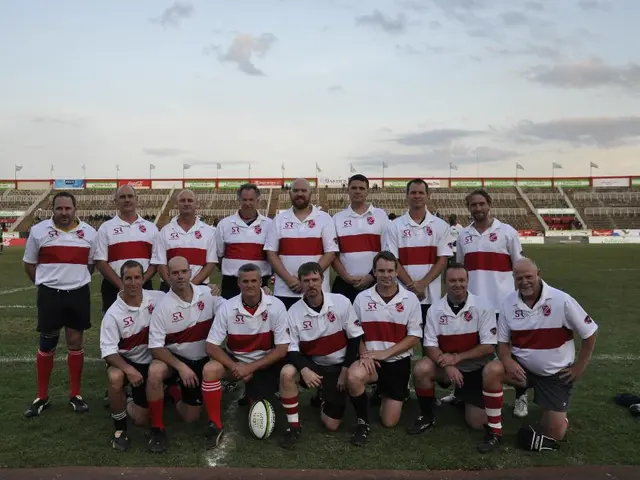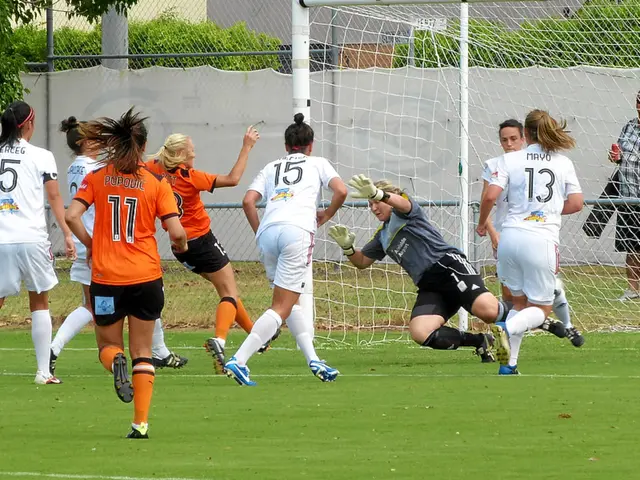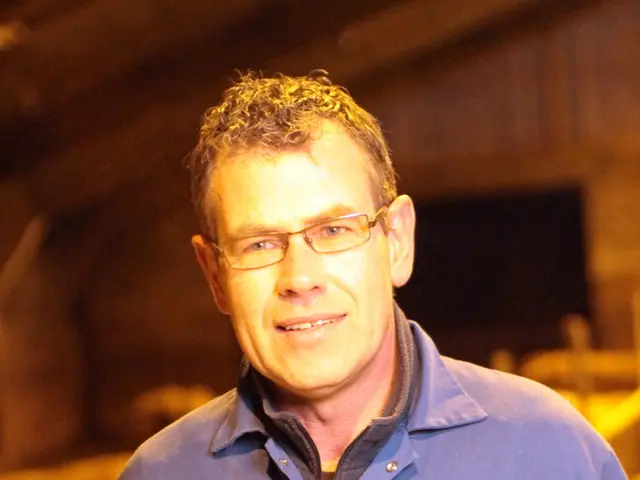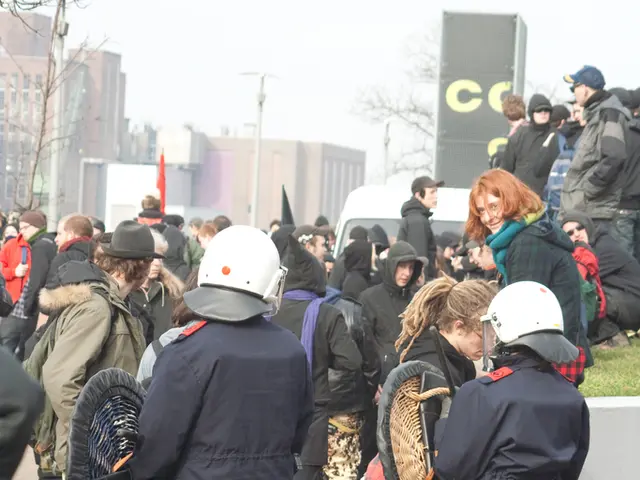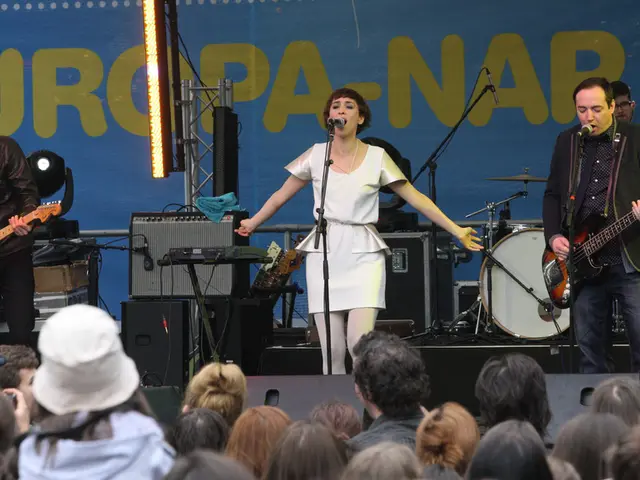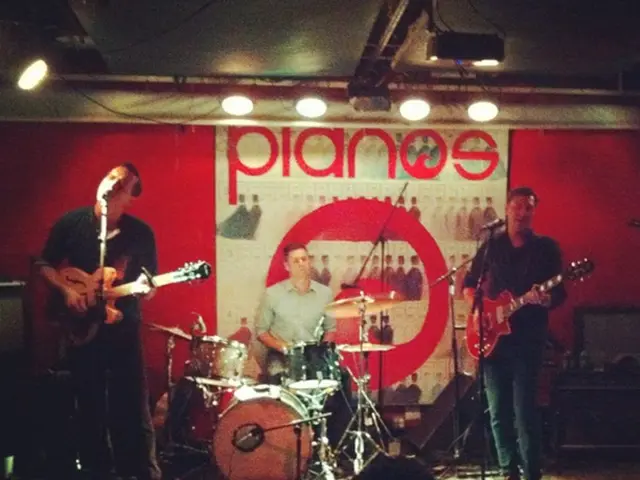Amidst another instance of triumph tainted by sorrow, Liverpool's community rallies in their time of need, drawing solace and unity from their shared bond.
In an unexpected turn of events, the triumphant 10-mile parade celebrating Liverpool Football Club's 20th league title was tarnished by a tragic incident. On Water Street, a grey Ford Galaxy plowed into a crowd, injuring 79 people, including four children, and leaving four individuals trapped under the vehicle.
The vehicle, which police speculate may have been following an ambulance trying to navigate roadblocks, brought an abrupt end to the festivities that had been filling the air with red smoke from flares and red dust on shoes. The incident occurred soon after the team's open-top bus had passed through the area, marring the day that was meant for unadulterated joy and celebration.
Preliminary investigations point towards Paul Doyle, a 53-year-old man from the Liverpool area, as the suspect. The police are not treating the incident as terrorism-related. As of Thursday, seven of the injured remain hospitalized.
For a club whose history is marked by both glory and heartbreak, the incident serves as another dark reminder. However, the lessons being taken from this unfortunate event are ones of strength, solidarity, and community—a spirit that is emblematic of Liverpool Football Club.
Tracing back to the 1980s, tragedies have significantly impacted Liverpool as a city and club. The Heysel Disaster in Brussels in 1985, which led to the death of 39 fans and the injury of 600, is just one of those incidents that resurfaced in many minds on May 26.
The mayor of the Liverpool City Region, Steve Rotheram, who was at the European Cup final on the fateful day, emphasized the importance of remembering the disaster on its 40th anniversary. He pointed out the poor policing, stadium issues, and organizational problems that contributed to the tragedy, as well as the role some Liverpool fans played.
The Hillsborough Stadium disaster four years later, in which overcrowded standing areas led to the death of 97 Liverpool supporters, stands as the worst sports disaster in British history. Many are Quick to draw parallels between these disasters and the recent incident on May 26.
However, according to Neil Atkinson of The Anfield Wrap, there is little in common between these past events and the incident at the parade. "When we think of those other instances of things that have happened to Liverpool, city or club, so many of them stem from huge glaring institutional failure that's followed by a cover-up," he told CNN Sports. "In this instance, there's an example of a lone, single person acting in a certain way, followed by institutional transparency."
In the face of such adversity, Liverpool has proven time and again its strong sense of community and self-reliance. In the chaos that ensued, medical staff, emergency services, and bystanders quickly responded to help the injured. Restaurants opened their doors to provide makeshift medical centers, and businesses offered support to their employees.
Mayor Rotheram summed up the spirit of the city, saying, "Scousers reacted as I knew that they would, offering food and drink, warmth, somewhere to rest." The outpouring of support extends beyond the city, with both Liverpool and its rival, Everton, expressing solidarity in the face of tragedy.
As the legal proceedings against Paul Doyle continue, the focus shifts towards the recovery of the injured and the healing of the city. The spirit of Liverpool remains resilient, exemplifying Neil Atkinson's belief that "the ordinary people of the world" have the capacity to be compassionate and supportive in the face of adversity.
The tragic incident on Water Street, involving a car-accident that occurred during the 10-mile parade celebrating Liverpool Football Club's 20th league title, brings to mind past tragedies such as the Heysel Disaster and the Hillsborough Stadium disaster. Despite this, Neil Atkinson of The Anfield Wrap notes little similarity between these past incidents and the current one, emphasizing a lone, single person's actions and the subsequent institutional transparency. Meanwhile, Liverpool's spirit of community and self-reliance shines through in the actions of medical staff, emergency services, and bystanders, with restaurants and businesses offering support in the aftermath.

